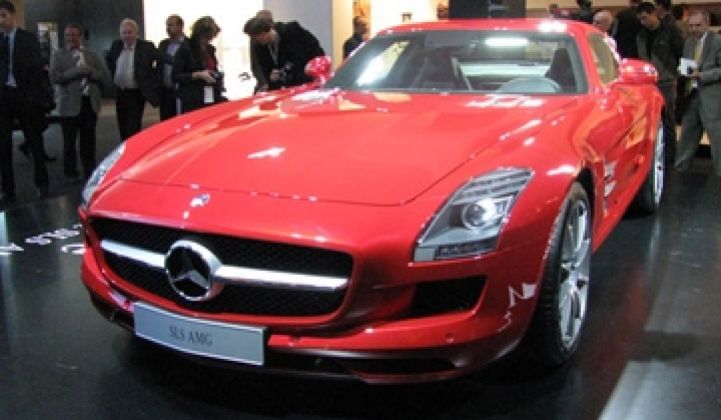While experts still debate when the world will hit peak oil production, the Energy Information Administration (EIA) said that the U.S. may have plateaued when it comes to consumption.
The EIA said today that U.S. oil consumption may stay at 19 million barrels a day all the way through 2035. Energy consumption will rise, but the difference will be made up by ethanol, which could constitute 17 percent of "gasoline" consumption in the U.S. The states still suffer from a paucity of filling stations. Most of that consumption will likely come in the form of gas with a higher ethanol blend than today's 5 percent mix. Domestic oil production will also likely rise from five million barrels a day to six million by 2027.
Ethanol demand could increase more if stricter regulations are imposed. Right now, U.S. ethanol producers are behind targets set earlier. Earlier, the EIA wanted to see 36 billion gallons of biofuels produced by 2022. Almost exactly a year ago, the EIA reduced the projection to 30 billion gallons. The culprit? A slow start for many cellulosic ethanol manufacturers and money. In the past year, a fire sale of sorts has emerged in ethanol with companies in financial straits selling, or trying to sell, refineries. Valero, for instance, bought seven facilities from VeraSun for nearly $500 million.
Overall, fossil fuel will account for 78 percent of U.S. energy consumption in 2035, down from 84 percent today.
Oil consumption, however, will continue to rise globally by about 1 percent a year. That means that daily consumption will likely rise from today's 84.5 million barrels a day to 111.7 million barrels a day by 2035. So it's a good news/bad news story.
Meanwhile, Coulomb Technologies erected its first electric charging station in Canada in the Vancouver area. It will be used by fleet cars. Expect other announcements to occur in Canada soon. The Winter Olympics are coming and a few organizations and companies plan to use the event to tout green buildings and technologies to reduce emissions and/or energy consumption.
Toyota also said today that it would come out with plug-in hybrids and electric vehicles in 2011. Toyota has been a bit more cautious than other companies such as Nissan and General Motors when it comes to all-electric cars. Toyota, though, has fared better than those two companies in recent years.
Daimler, meanwhile, said it would bring its electric smart car to China. Daimler also has plans to release a luxury Mercedes running on electricity to the market in 2013 (see groovy pictures here).
Photo: Mercedes SLS AMG, an all-electric coming in 2013.



